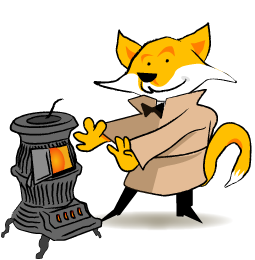Lesson 2: Molecules on the Move
Overview
Through direct observations and computer simulations students are introduced to the concept that heat is the transfer of thermal energy.
Key Ideas
- Matter is made up of particles (atoms or molecules) that are moving.
- The arrangement and motion of the particles of matter differs depending on temperature. At higher temperatures, particles have greater energy and are more spread out. At lower temperatures, particles have less energy and are more compact.
- Heat is a form of energy that is related to the random motion of molecules.
- Models are used by scientists to explain ideas.
Lesson Goals
Students will:
- describe the motion of particles (atoms or molecules) of matter at different temperatures and in different states.
- recognize the random motion of molecules as thermal energy. When thermal energy is transferred from one object to another, the amount of energy transferred is called heat.
- be introduced to the idea that all matter has thermal energy.
- consider the benefits and limitations of models.
Lesson Resources
Download Lesson Plan (11 pages, 784 KB)
 Student Handout 2.1: Molecules on the Move
Student Handout 2.1: Molecules on the Move
(5.16 KB)
Tutorial for teachers: NSTA Science Objects: Energy: Thermal Energy, Heat, & Temperature
(Science Objects are listed under Publications and Products tab.)
Computer simulations of molecular movement:
Phases of Matter from the Miami Science Museum
Particles in Action from Harcourt School Publishers
Three States of Matterfrom Vision Learning
Online Extensions
Explore Physics Central "Physics in your Glass: Racing Molecules."
A description of the molecular motion of water in its various states and explains the differential movement of food coloring though warm and cold water. Included is a “Try this” section that encourages users to try the food coloring experiment with vegetable oil, adding soap, and adding salt.
Learn how a thermometer works and find out how to build one.
Weather Wiz Kids: Temperature
Find out what temperature means and how it is measured. Use the temperature conversion, wind chill, and heat index calculators.
Connection to Maine Agencies
A Maine Energy Education Program (MEEP) representative and will come to interested schools, free of charge, to guide and support the concepts in lesson.
For schools in Aroostook County, a Maine Public Service (MPS) representative will come to interested schools, free of charge, to guide and support concepts developed in this lesson.


